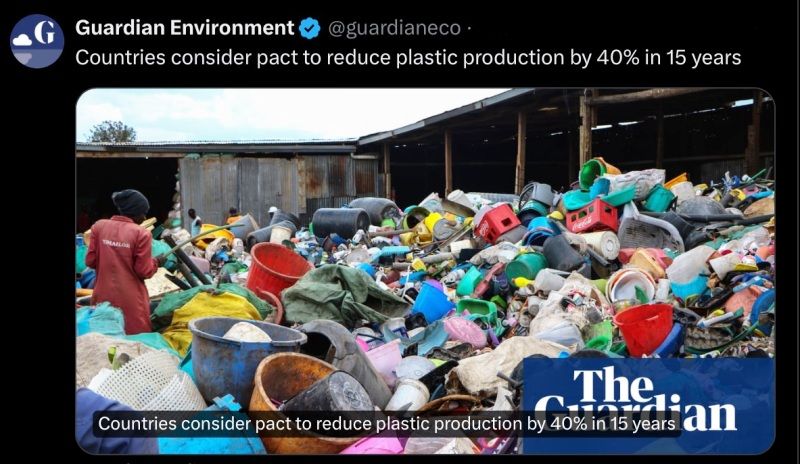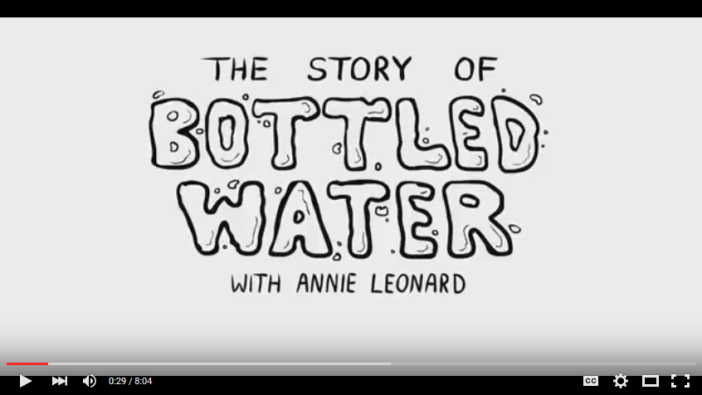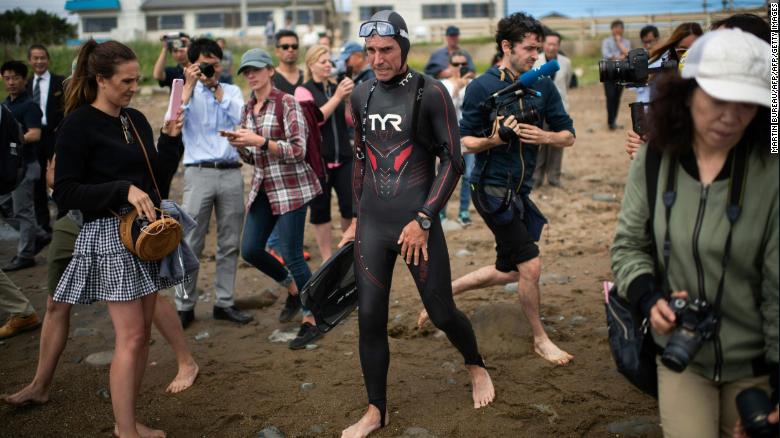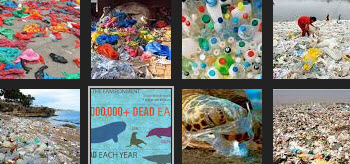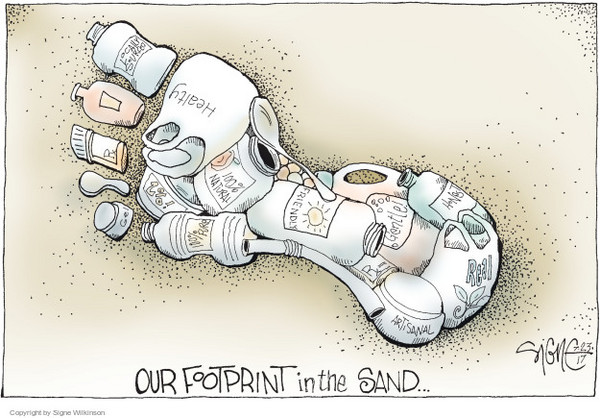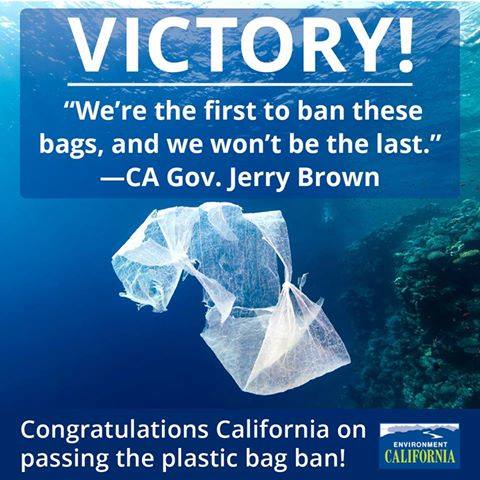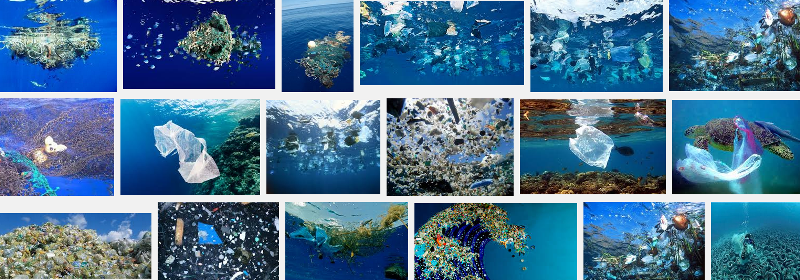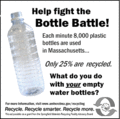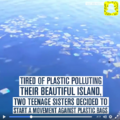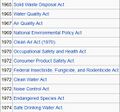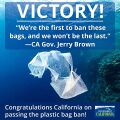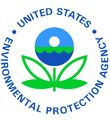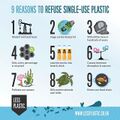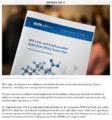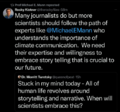Category:Plastic Pollution: Difference between revisions
Siterunner (talk | contribs) (Created page with "http://en.wikipedia.org/wiki/Plastic_pollution http://www.trueactivist.com/longest-floating-structure-in-history-sets-out-to-clean-the-ocean-in-2016 http://www.theoceanclean...") |
Siterunner (talk | contribs) No edit summary |
||
| (144 intermediate revisions by the same user not shown) | |||
| Line 1: | Line 1: | ||
http://www.theoceancleanup.com/blog/show/item/worlds-first-ocean-cleaning-system-to-be-deployed-in-2016.html | [[File:Featured.png]] | ||
<big><big>'''One word -- Plastics'''</big></big> | |||
:"There's a great future in plastics"... But.... | |||
:: * https://www.youtube.com/watch?v=eMtLdE5Zq-8 | |||
○ | |||
[[File:Plastic Reduction agr plan.png]] | |||
<big><big>'''Countries consider pact to reduce plastic production by 40% in 15 years'''</big></big> | |||
Via The Guardian (2024) | |||
* https://www.theguardian.com/environment/2024/apr/29/countries-reduce-plastic-production | |||
○ | |||
<big><big>'''Microplastics are getting into everything!'''</big></big> | |||
: '''Everything includes... You''' | |||
: [[Microbeads]] are Polluting the Environment -- and You | |||
:* https://greenpolicy360.net/w/Microbeads | |||
○ | |||
<big><big>'''A World Awash with Plastic Waste'''</big></big> | |||
''Approximately 8 million metric tons of plastic waste enters the world's oceans each year. If such practices continue, plastic waste could reach up to 53 million metric tons '''per year''' by the end of the decade." -- EE News, December 2021'' | |||
* https://www.greenpolicy360.net/w/Category:Plastic_Pollution | |||
<big>'''A Closer Look at the Petrochemical Plastics Industry and Recycling'''</big> | |||
* https://www.theatlantic.com/ideas/archive/2022/05/single-use-plastic-chemical-recycling-disposal/661141/ | |||
''Americans support recycling. We do too. But although some materials can be effectively recycled and safely made from recycled content, plastics cannot. Plastic recycling does not work and will never work. The United States in 2021 had a dismal recycling rate of about 5 percent for post-consumer plastic waste, down from a high of 9.5 percent in 2014, when the U.S. exported millions of tons of plastic waste to China and counted it as recycled—even though much of it wasn’t.'' | |||
''Recycling in general can be an effective way to reclaim natural material resources. The U.S.’s high recycling rate of paper, 68 percent, proves this point. The problem with recycling plastic lies not with the concept or process but with the material itself.'' | |||
''The first problem is that there are thousands of different plastics, each with its own composition and characteristics. They all include different chemical additives and colorants that cannot be recycled together, making it impossible to sort the trillions of pieces of plastics into separate types for processing. For example, polyethylene terephthalate (PET#1) bottles cannot be recycled with PET#1 clamshells, which are a different PET#1 material, and green PET#1 bottles cannot be recycled with clear PET#1 bottles (which is why South Korea has outlawed colored PET#1 bottles.) High-density polyethylene (HDPE#2), polyvinyl chloride (PVC#3), low-density polyethylene (LDPE#4), polypropylene (PP#5), and polystyrene (PS#6) all must be separated for recycling.'' | |||
''Just one fast-food meal can involve many different types of single-use plastic, including PET#1, HDPE#2, LDPE#4, PP#5, and PS#6 cups, lids, clamshells, trays, bags, and cutlery, which cannot be recycled together. This is one of several reasons why plastic fast-food service items cannot be legitimately claimed as recyclable in the U.S.'' | |||
''Another problem is that the reprocessing of plastic waste — when possible at all — is wasteful....'' | |||
''Unlike metal and glass, plastics are not inert. Plastic products can include toxic additives and absorb chemicals, and are generally collected in curbside bins filled with possibly dangerous materials such as plastic pesticide containers. According to a report published by the Canadian government, toxicity risks in recycled plastic prohibit “the vast majority of plastic products and packaging produced” from being recycled into food-grade packaging.'' | |||
''Yet another problem is that plastic recycling is simply not economical. Recycled plastic costs more than new plastic because collecting, sorting, transporting, and reprocessing plastic waste is exorbitantly expensive.... '' | |||
''Despite this stark failure, the plastics industry has waged a decades-long campaign to perpetuate the myth that the material is recyclable. This campaign is reminiscent of the tobacco industry’s efforts to convince smokers that filtered cigarettes are healthier than unfiltered cigarettes.'' | |||
''Conventional mechanical recycling, in which plastic waste is ground up and melted, has been around for many decades. Now the plastics industry is touting the benefits of so-called chemical recycling — in which plastic waste is broken down using high heat or more chemicals and turned into a low-quality fossil fuel.'' | |||
[https://www.theatlantic.com/ideas/archive/2022/05/single-use-plastic-chemical-recycling-disposal/661141/ '''Read more at The Atlantic'''] | |||
Re: The plastics industry has waged a decades-long campaign to perpetuate the myth that the material is recyclable | |||
The plastic industry (is) expanding like never before and the crisis of ocean pollution growing. FRONTLINE and NPR investigate the fight over the future of plastics. | |||
* https://www.pbs.org/wgbh/frontline/film/plastic-wars/ | |||
Re: The plastics industry is 'Spinning the Facts' about plastic recycling | |||
* https://www.greenpolicy360.net/w/Merchants_of_Doubt | |||
* https://www.greenpolicy360.net/w/File:What_you_can_do_about_disinformation_-_UCUSA.png | |||
* https://www.theenergymix.com/2020/09/24/systematic-disinformation-promoted-recycling-maintained-plastics-status-quo/ | |||
* https://www.cbsnews.com/news/plastic-recycling-rate-5-failure-say-environmentalists/ | |||
* https://www.cbsnews.com/news/plastic-recycling-rate-5-failure-say-environmentalists/ | |||
○ | |||
''' Global plastic waste on track to almost triple by 2060, says OECD''' | |||
* https://www.circularonline.co.uk/news/global-plastic-waste-on-track-to-almost-triple-by-2060-says-oecd/ | |||
·············································································· | |||
<big><big><big>'''Where's all the plastic going?'''</big></big></big> | |||
'''Microplastics Found in Every Human Tissue Studied''' | |||
* https://www.technologynetworks.com/applied-sciences/news/microplastics-found-in-every-human-tissue-studied-338672 | |||
<big>More on Microplastics</big> | |||
'''Microplastic Pollution Across World Oceans: Enormous Disaster ''' | |||
"Particles may outnumber zooplankton, which underpin marine life and regulate climate" | |||
* https://www.theguardian.com/environment/2020/may/22/microplastic-pollution-in-oceans-vastly-underestimated-study | |||
''Microplastics have entered the food chain in rivers, with birds found to be consuming hundreds of particles a day via the aquatic insects on which they feed.'' | |||
''Microplastic pollution has contaminated the whole planet, from Arctic snow and mountain soils to many rivers and the deepest oceans. It is also being consumed and inhaled by people, and the health impacts are as yet unknown.'' | |||
''Research published in the last month in 'Environmental Pollution' has found microplastics in greater quantities than ever before on the seabed and suggested that hundreds of thousands of tonnes of microplastics could be blowing ashore on the ocean breeze every year...'' | |||
[https://www.theguardian.com/us-news/2019/jun/23/all-the-plastic-ever-made-study-comic '''Humans have made 8.3bn tons of plastic since 1950'''] | |||
[https://www.theguardian.com/us-news/2019/jun/23/all-the-plastic-ever-made-study-comic '''Where has all the plastic gone?'''] | |||
:[https://www.theguardian.com/us-news/2019/jun/17/recycled-plastic-america-global-crisis '''Via the Guardian / Waste makes its way across the world – and overwhelms the poorest nations'''] | |||
'''Plastic in the Oceans''' | |||
* https://plasticoceans.org | |||
* https://plasticoceans.org/the-facts/ | |||
* https://www.globalcitizen.org/en/content/9-facts-about-ocean-plastic/ | |||
* https://recyclecoach.com/resources/7-new-facts-about-plastic-pollution-in-the-ocean-2022/ | |||
[[File:The Story of Bottled Water video.png]] | |||
* https://greenpolicy360.net/w/File:The_Story_of_Bottled_Water_video.png | |||
<big>'''2020'''</big> | |||
'''More Data Needed as Plastic Pollution Spreads''' | |||
''In 2016 — the last year enough data was available and before several countries cracked down on imports of American waste — the United States generated 46.3 million tons (42 million metric tons) of plastic waste, by far the most in the world. Between 2.7% and 5.3% of that was mismanaged — not burned, placed in landfills or otherwise disposed of properly, according to a study in Friday’s journal Science Advances. | |||
* https://apnews.com/article/oceans-us-news-united-states-d3ee56012562c6110faf6b9e92b0fd03 | |||
* https://advances.sciencemag.org/content/6/44/eabd0288 | |||
····························· | |||
'''Lawsuit Filed: Time for Legal Action''' | |||
* https://www.onegreenplanet.org/environment/coca-cola-pepsico-pg-and-nestle-sued-over-creating-plastic-waste-and-destroying-the-planet/ | |||
············································ | |||
<big>'''PLASTIC EVERYWHERE'''</big> | |||
By Tim Dickinson / Rolling Stone | |||
MARCH 3, 2020 | |||
* https://www.rollingstone.com/culture/culture-features/plastic-problem-recycling-myth-big-oil-950957/ | |||
''Every human on Earth is ingesting nearly 2,000 particles of plastic a week. These tiny pieces enter our unwitting bodies from tap water, food, and even the air, according to an alarming academic study sponsored by the World Wildlife Fund for Nature, dosing us with five grams of plastics, many cut with chemicals linked to cancers, hormone disruption, and developmental delays. Since the paper’s publication last year, Sen. Tom Udall, a plain-spoken New Mexico Democrat with a fondness for white cowboy hats and turquoise bolo ties, has been trumpeting the risk: “We are consuming a credit card’s worth of plastic each week,” Udall says. At events with constituents, he will brandish a Visa from his wallet and declare, “You’re eating this, folks!”'' | |||
''Udall introduces the Break Free From Plastic Pollution Act of 2020...'' | |||
* https://www.tomudall.senate.gov/news/press-releases/udall-lowenthal-merkley-clark-unveil-landmark-legislation-to-break-free-from-plastic-pollution | |||
* https://www.plasticpollutioncoalition.org/break-free-from-plastic-pollution-act-summary | |||
* https://www.congress.gov/bill/116th-congress/house-bill/5845?s=1&r=84 | |||
* https://www.breakfreefromplastic.org/2020/02/12/federal-legislation-plastic-pollution-crisis/ | |||
····························· | |||
'''''Is microplastic the next health crisis?''''' | |||
''At this critical time for our environment, The Guardian is deeply committed to covering climate change, plastic pollution and other threats to our world as a matter of urgent priority, keeping these issues on our front pages daily.'' | |||
''This month (June 2019), we’re asking readers to help us raise money for Toxic America, a new US environmental series that will explore the health implications of living in a world that may expose us to chemical contamination on a daily basis.'' | |||
''One focus of the project will be on the impact of plastic pollution on our health. Up to 14m tons of plastic enter the world’s oceans every year, the equivalent to dumping one garbage truck of plastic per minute into the ocean. As microplastics become ubiquitous in the environment, they are finding their way into the food chain via the salt, seafood and other sources in our diets.'' | |||
<big><big>'''Big, Small & Micro: Plastics Are Turning Up Everywhere'''</big></big> | |||
'''Microplastics in the Oceans''' | |||
• https://blog.nationalgeographic.org/2016/04/04/pesky-plastic-the-true-harm-of-microplastics-in-the-oceans/ | |||
• https://news.nationalgeographic.com/2018/05/plastics-facts-infographics-ocean-pollution | |||
• https://www.theguardian.com/environment/2018/mar/12/microplastic-pollution-in-oceans-is-far-greater-than-thought-say-scientists | |||
• https://www.wired.co.uk/article/big-blue-whale-plastic-pollution | |||
• https://www.iflscience.com/environment/far-more-microplastics-floating-oceans-thought/ | |||
• https://www.vox.com/the-goods/2018/9/19/17800654/clothes-plastic-pollution-polyester-washing-machine | |||
<big><big>'''Plastic Above & Below: Up & Down'''</big></big> | |||
[https://www.theatlantic.com/science/archive/2019/02/deepest-ocean-trenches-animals-eat-plastic/583657/ '''Ocean Animals that Eat Plastic'''] | |||
''The world produces an estimated 10 tons of plastic a second, and between 5 million and 14 million tons sweep into the oceans every year. Some of that debris washes up on beaches, even on the world’s most isolated islands. About 5 trillion pieces currently float in surface waters, mostly in the form of tiny, easy-to-swallow fragments that have ended up in the gut of albatrosses, sea turtles, plankton, fish, and whales. But those pieces also sink, snowing into the deep sea and upon the amphipods that live there...'' | |||
:• ''https://royalsocietypublishing.org/doi/10.1098/rsos.180667'' | |||
:·········································································· | |||
[[File:Ben Lecomte enters the Pacific.jpg]] | |||
<small>France's Ben Lecomte starts out on his journey across the Pacific Ocean from Japan</small> | |||
[https://www.cnn.com/2018/12/11/us/pacific-swim-ben-lecomte-hawaii/index.html <big>'''''He swam from Japan to Hawaii. At times Ben Lecomte saw a piece of plastic in the ocean every three minutes'''''</big>] | |||
''Lecomte, associate director of sustainability services at a consulting firm, and the crew of his support boat Discoverer set off from Chōshi, Japan. He had aimed to swim eight hours a day, covering a daily average of 30 miles.'' | |||
''Researchers from 12 scientific institutions, including NASA and the Woods Hole Oceanographic Institution, conducted studies and gathered samples during Lecomte's journey.'' | |||
''The researchers focused on eight areas of interest, including plastic pollution, radiation from the Fukushima disaster, and the swim's effects on Lecomte's heart and psychological state.'' | |||
(As the cross-Pacific attempt ended in Hawaii...) | |||
''Despite the setback with the weather, Lecomte said he still hopes to eventually finish his swim to San Francisco and continue to sound the alarm about plastic pollution.'' | |||
''"The mission doesn't ever stop. It will carry on with the same ideas, bringing as much awareness on ocean pollution, on plastic, to try to inspire people to change their habit," he said. "It's the way we live on land, the way we don't recycle, the way that we use single-use plastic also contributes a lot, so we have to change that."'' | |||
=='''''The Plastic Problem, Multi-dimension, Environmental, Worldwide'''''== | |||
| |||
<big>'''''Local Communities Step Up to Fight Plastic Pollution'''''</big> | |||
[http://www.tampabay.com/data/2018/07/06/plastic-pollution-in-tampa-bay-is-bigger-than-straws-heres-how-local-advocates-are-working-on-it/ '''''Plastic pollution in Tampa Bay is bigger than straws. Here’s what local advocates are doing'''''] | |||
······················································· | |||
'''''Via National Geographic / June 2018''''' | |||
<big>'''''We're Drowning in Plastic'''''</big> | |||
''The miracle material has made modern life possible. But more than 40 percent of it is used just once, and it’s choking our waterways'' | |||
:* https://www.nationalgeographic.com/magazine/2018/06/plastic-planet-waste-pollution-trash-crisis/ | |||
:* https://www.nationalgeographic.com/magazine/2018/06/ | |||
:[[File:Ban on Plastic Bags approved in Calif.jpg]] | |||
[https://www.thelancet.com/journals/lanplh/article/PIIS2542-5196(17)30121-3/fulltext?code=lancet-site <big>'''''Plastic Pollution, Microplastics and Human Health / Via Lancet (2017)'''''</big>] | |||
''Microplastics come from many sources: synthetic clothing fibres, dust from tyres, road paints, and the breakdown of larger items. Orb Media's recent investigation has brought the issue of microplastics in the environment into sharp focus. The analysis of tap water samples from around the world found that a high proportion of drinking water is contaminated with microscopic fragments of plastic (83% of samples collected worldwide, but up to 94% in the USA). Microplastic contamination seems more widespread than we perhaps knew, and they are regularly being ingested by people worldwide. Most concerning is how little is known about the effects of microplastic consumption on human health.'' | |||
''It is no small problem. As of 2015, 6300 million tonnes of plastic waste have been generated, around 9% of which was recycled, 12% was incinerated, and 79% ended up in landfills or the environment. The issue of large plastic items polluting the world's oceans is well known, leading to policies that aim to limit the production and use of plastic bags and bottles, and increase recycling. However, a key problem with plastics is that they are essentially indestructible; rather than being biodegraded, they break down into smaller and smaller pieces, eventually becoming microscopic fragments. We should no longer just be concerned with large plastic items clogging up oceans and waterways, but also more attention needs to be paid to these tiny fragments and their effects on planetary health....'' | |||
''The ubiquity of microplastic contamination can no longer be denied. To mitigate this global problem, several actions need to be taken, and quickly. First, the amount of plastic being released into the environment must be drastically reduced. Some policies have already been formulated with this goal in mind, for example, many countries have made it illegal for retailers to give away plastic bags for free, and deposit schemes for plastic bottles are in place in parts of the USA and Europe. However, progress on this front has been slow and piecemeal.'' | |||
''To speed up progress on reducing plastic waste, manufacturers of plastic could be forced to take responsibility for the damage wrought on the environment; this is beginning to happen through extender producer responsibility (EPR) laws, which require plastic producers to fund and manage recycling and disposal of their products...'' ''https://www.thelancet.com/journals/lanplh/article/PIIS2542-5196(17)30121-3/fulltext'' | |||
* http://www.biologicaldiversity.org/campaigns/ocean_plastics/ | |||
* https://www.greenpolicy360.net/w/The_Commons | |||
* https://www.greenpolicy360.net/w/Category:Oceans | |||
········································································· | |||
<big>'''''2018 Updates'''''</big> | |||
[https://www.theguardian.com/environment/2018/jan/16/eu-declares-war-on-plastic-waste-2030 '''''European Union declares war on plastic waste'''''] | |||
:''Single-use plastics targeted in urgent clean-up plan that aims to make all packaging reusable or recyclable by 2030'' | |||
[http://www.independent.co.uk/environment/plastic-packaging-recyclable-deadline-2030-eu-strategy-theresa-may-latte-levy-a8163711.html '''''All plastic packaging to be recyclable by 2030 as part of new EU strategy'''''] | |||
[http://www.bbc.com/news/uk-42703561 '''''Plastic recycling: Your questions answered'''''] | |||
<big>'''''A Few "Preposterous Facts" about Plastic Pollution'''''</big> | |||
* [https://www.theguardian.com/environment/2018/jan/17/nearly-1m-tonnes-every-year-supermarkets-shamed-for-plastic-packaging '''''Nearly 1m tonnes every year: supermarkets shamed for plastic packaging'''''] | |||
(''Via'' [http://ecowatch.com/2014/04/07/22-facts-plastic-pollution-10-things-can-do-about-it/ ''EcoWatch'']) | |||
: ''Over the last ten years we have produced more plastic than during the whole of the last century.'' | |||
: ''50 percent of the plastic we use, we use just once and throw away.'' | |||
: ''Enough plastic is thrown away each year to circle the earth four times. We currently recover only five percent of the plastics we produce.'' | |||
: ''The average American throws away approximately 185 pounds of plastic per year. Plastic accounts for around 10 percent of the total waste we generate.'' | |||
: ''The production of plastic uses around eight percent of the world's oil production (bioplastics are not a good solution as they require food source crops).'' | |||
''Americans throw away 35 billion plastic water bottles every year. (Source: Brita)'' | |||
''Annually approximately 500 billion plastic bags are used worldwide. More than one million bags are used every minute.'' | |||
: ''It takes 500-1,000 years for plastic to degrade.'' | |||
: ''Virtually every piece of plastic that was ever made still exists in some shape or form (with the exception of the small amount that has been incinerated).'' | |||
: ''Plastic chemicals can be absorbed by the body—93 percent of Americans age six or older test positive for BPA ([https://en.wikipedia.org/wiki/Bisphenol_A plastic chemical]).'' | |||
: ''Some of these compounds found in plastic have been found to alter hormones or have other potential human health effects.'' | |||
:[[File:Plastic in the sand.JPG]] | |||
: ''Plastic in the ocean breaks down into such small segments that pieces of plastic from a one liter bottle could end up on every mile of beach throughout the world.'' | |||
: ''Billions of pounds of plastic can be found in swirling convergences in the oceans making up about 40 percent of the world's ocean surfaces. 80 percent of pollution enters the ocean from the land.'' | |||
: ''46 percent of plastics float (EPA 2006) and it can drift for years before eventually concentrating in the ocean gyres.'' | |||
: ''The Great Pacific Garbage Patch is located in the North Pacific Gyre off the coast of California and is the largest ocean garbage site in the world. This floating mass of plastic is twice the size of Texas, with plastic pieces outnumbering sea life six to one.'' | |||
: ''Plastic constitutes approximately 90 percent of all trash floating on the ocean's surface, with 46,000 pieces of plastic per square mile.'' | |||
: ''One million sea birds and 100,000 marine mammals are killed annually from plastic in our oceans. 44 percent of all seabird species, 22 percent of cetaceans, all sea turtle species and a growing list of fish species have been documented with plastic in or around their bodies.'' | |||
: ''Pieces of plastic: In collection surveys of the US Great Lakes, 85 percent of the plastic particles were smaller than two-tenths of an inch, and much of that was microscopic. Researchers found 1,500 and 1.7 million of these particles per square mile.'' | |||
<big><big>'''Plastic Everywhere, No Escaping This Fast-Spreading Petro-chemical Product'''</big></big> | |||
[http://news.nationalgeographic.com/2017/07/ocean-plastic-patch-south-pacific-spd/ '''National Geographic, Plastic Garbage Patch Bigger Than Mexico Found in Pacific'''] | |||
: ''"Yet another floating mass of microscopic plastic has been discovered in the ocean, and it is mind-blowingly vast"'' | |||
: ''"Recycling plastic? A whopping 91% of plastic isn't recycled"'' | |||
[http://advances.sciencemag.org/content/3/7/e1700782 '''Science Advances (July 2017): Production, Use, and Fate of All Plastics Ever Made'''] | |||
: ''Study: "The first global analysis of all mass-produced plastics ever manufactured... We estimate that '''8300 million metric tons (Mt)''' of virgin plastics have been produced to date."'' | |||
: ''"As of 2015, approximately 6300 Mt of plastic waste had been generated, around 9% of which had been recycled, 12% was incinerated, and 79% was accumulated in landfills or the natural environment. If current production and waste management trends continue, roughly 12,000 Mt of plastic waste will be in landfills or in the natural environment by 2050."'' | |||
[http://www.economist.com/news/science-and-technology/21635982-amount-plastic-sea-huge-and-widely-spread-charting-plastic '''Economist: Plastics, a Huge Problem and Spreading'''] | |||
: http://www.economist.com/blogs/graphicdetail/2015/02/daily-chart-14 | |||
| |||
='''Plastic Pollution Solutions'''= | |||
| |||
(March 2020 / US Congress) ''With the Break Free From Plastic Pollution Act of 2020, Senator Udall D - NM) is attempting to marshal Washington into a confrontation with the plastics industry, and to force companies that profit from plastics to take accountability for the waste they create. Unveiled in February, the bill would ban many single-use plastics and force corporations to finance “end of life” programs to keep plastic out of the environment. “We’re going back to that principle,” the senator tells Rolling Stone. “The polluter pays.”'' | |||
○ | |||
* https://www.weforum.org/reports/the-new-plastics-economy-rethinking-the-future-of-plastics | |||
: http://www3.weforum.org/docs/WEF_The_New_Plastics_Economy.pdf | |||
: https://www.ellenmacarthurfoundation.org/publications/the-new-plastics-economy-rethinking-the-future-of-plastics | |||
* https://newplasticseconomy.org/ | |||
: https://twitter.com/NewPlasticsEcon | |||
* http://www.surfrider.org/programs/plastic-pollution | |||
:* http://www.surfrider.org/pages/polystyrene-ordinances | |||
* http://plastic-pollution.org/ | |||
* http://oceancrusaders.org/plastic-crusades/ | |||
:* http://oceancrusaders.org/plastic-crusades/plastic-statistics/ | |||
* http://www.plasticpollutioncoalition.org/ | |||
: http://www.plasticpollutioncoalition.org/the-movement/ | |||
<big>'''Plastic Clean-up of Oceans, a Big Idea from Holland'''</big> | |||
: from the mind and activism of a 21 year old | |||
:* https://www.youtube.com/watch?v=ZCR2V1HAq78 | |||
○ | |||
<big>'''Plastic Clean-Up with a Funded Future'''</big> | |||
: from the mind of a young inventor and high-tech team | |||
:* https://www.theoceancleanup.com/ | |||
:* https://www.theoceancleanup.com/milestones/pacific-cleanup-trials/ | |||
:* https://www.theoceancleanup.com/technology/ | |||
:* https://www.theoceancleanup.com/press/ | |||
:* http://www.theoceancleanup.com/blog/show/item/worlds-first-ocean-cleaning-system-to-be-deployed-in-2016.html | |||
: [https://cleantechnica.com/2017/07/31/company-known-ocean-cleanup-aims-launch-fleet-trash-collecting-booms-approach-make-sense/ '''Challenges for and Question Marks about Ocean Clean Up Company'''] | |||
○ | |||
<big>'''A Model: A Plastic Clean-up Champion'''</big> | |||
:'''One-by-One: What Can Be Done with a Strategy and Purpose, Afroz Shah in Mumbai''' | |||
:''Inspiration and Action'' | |||
:'''''I am an ocean lover and feel that we owe a duty to our ocean to make it free of plastic. I just hope this is the beginning for coastal communities across India and the world.''''' | |||
''Afroz Shah, a young Indian lawyer from Mumbai, is synonymous with '''the world’s largest beach clean-up project.''''' | |||
''In October 2015, Shah and his neighbor Harbansh Mathur, an 84-year-old who has since passed away, were frustrated with the piles of decomposing waste that had washed up and completely overwhelmed the city’s Versova beach. Determined to do something about it, the pair started cleaning up the beach themselves, one piece of rubbish at a time.'' | |||
''Every weekend since, Shah has inspired volunteers to join him – from slum-dwellers to Bollywood stars, from schoolchildren to politicians. They have been turning up at Versova for what Shah calls "a date with the ocean", but what in reality means labouring shin-deep in rotting garbage under the scorching Indian sun.'' | |||
''So far, the volunteers have collected over 4,000 tons of trash from the 2.5 kilometre beach.'' | |||
''Shah, who rallied residents and fisherfolk by knocking on doors and explaining the damage marine litter causes, now plans to expand his group’s operation to prevent litter from washing down the local creek and onto the beach. He also wants to clean-up the coastline’s rubbish-choked mangrove forests, which act as a natural defense against storm surges, and to inspire similar groups across India and beyond to launch their own clean-up movements.'' | |||
''Shah is deservedly proud of the Versova residents' accomplishments. Not only has the movement brought marine little to the attention of decision-makers, it is also starting to win back the beach, with decreasing amounts of new litter appearing each month.'' | |||
''He vows to continue his beach clean-up crusade until people and their governments around the world change their approach to producing, using and discarding plastic and other products that wash up onto beaches all over the world.'' | |||
http://www.unep.org/championsofearth/laureates/2016/afroz-shah | |||
○ | |||
[[File:Best Practices check sm.png]] | |||
::<big><big>'''A Step Forward, [https://www.greenpolicy360.net/w/California_out_in_front_in_a_Green_future California Out in Front] Again'''</big></big> | |||
:[[File:Environment California - Jerry Brown quote on plastic bags.jpg]] | |||
<big>'''''San Francisco Passes Nation's Toughest Ban on Polystyrene Products'''''</big> | |||
:'''''Model Legislation / 2016 / Green Best Practices''''' | |||
: [http://time.com/4388034/san-francisco-polystyrene-ban-foam/ June 2016 / San Francisco - '''"Foam Products Banned'''] | |||
''The San Francisco Board of Supervisors on Tuesday unanimously voted to outlaw a host of commonly used foam products, in a move hailed as the nation’s most extensive such ban.'' | |||
''The ban applies to polystyrene food packaging, packing peanuts, to-go containers, coffee cups and pool toys, among other things. For most products, the ban will take effect Jan. 1, 2017. For meat and fish trays, it becomes effective July 1, 2017. The bill’s sponsors argued that such foam products, which are not biodegradable, pollute waterways and can harm animal life. They touted the ban as an example of the city’s leadership on environmental issues.'' | |||
* https://sfgov.legistar.com/View.ashx?M=F&ID=4400880&GUID=01FD9FA2-C693-4B54-AF95-5DAB6679FC83 | |||
* http://www.motherjones.com/environment/2016/06/san-francisco-ban-styrofoam-polystyrene | |||
○ | |||
* http://www.savesfbay.org/sites/default/files/Ban%20status_6-25-12.pdf (2012) | |||
* http://www.ci.milpitas.ca.gov/_pdfs/eng_EPS_Study_Appendices.pdf (Calif cities w/ bans 2011) | |||
○ | |||
[https://www.greenpolicy360.net/w/California_out_in_front_in_a_Green_future California Out in Front in a Green future] | |||
[http://www.cltampa.com/news-views/politics/article/20970772/in-st-pete-a-plastic-shopping-bag-ban-clears-its-first-hurdle Florida (and other states), Not out in front like California] | |||
<big><font color=blue>○ ○ ○ ○ ○ ○ ○ ○ ○ ○</font></big> | |||
<big>'''Read/Watch/Act'''</big> | |||
* http://en.wikipedia.org/wiki/Plastic_pollution | |||
* http://www.nrdc.org/oceans/plastic-ocean/ | |||
* http://news.nationalgeographic.com/news/2015/02/150212-ocean-debris-plastic-garbage-patches-science/ | |||
* http://www.trueactivist.com/longest-floating-structure-in-history-sets-out-to-clean-the-ocean-in-2016 | |||
* https://www.youtube.com/watch?v=1qT-rOXB6NI | |||
<h2>''' 'Plastic Soup''''</h2> | |||
<big><big>'''Millions of Tons of Plastic Dumped in World's Oceans, Seas, Lakes & Waterways Every Year'''</big></big> | |||
: Oceans, seas, shorelines globally polluted with plastic trash | |||
: Devastated wildlife populations, loss of biodiversity, accumulations of petro-chemical 'externalities' | |||
: The costs of human manufactured waste bring serious, damaging multiplier effects over time -- and it's time to change this | |||
[[File:Ocean Pollution w Plastic-800x280.png|link=https://www.greenpolicy360.net/mw/images/Ocean_Pollution_w_Plastic.png]] | |||
○ | |||
[[Category:Biodiversity]] | |||
[[Category:Environmental Full-cost Accounting]] | |||
[[Category:Externalities]] | |||
[[Category:Fossil Fuels]] | |||
[[Category:Health]] | |||
[[Category:Oceans]] | |||
[[Category:Pollution]] | |||
[[Category:Recycling]] | |||
[[Category:Waste Management]] | |||
[[Category:Water Pollution]] | |||
[[Category:Wildlife]] | |||
Latest revision as of 13:36, 29 April 2024
One word -- Plastics
- "There's a great future in plastics"... But....
○
Countries consider pact to reduce plastic production by 40% in 15 years
Via The Guardian (2024)
○
Microplastics are getting into everything!
- Everything includes... You
- Microbeads are Polluting the Environment -- and You
○
A World Awash with Plastic Waste
Approximately 8 million metric tons of plastic waste enters the world's oceans each year. If such practices continue, plastic waste could reach up to 53 million metric tons per year by the end of the decade." -- EE News, December 2021
A Closer Look at the Petrochemical Plastics Industry and Recycling
Americans support recycling. We do too. But although some materials can be effectively recycled and safely made from recycled content, plastics cannot. Plastic recycling does not work and will never work. The United States in 2021 had a dismal recycling rate of about 5 percent for post-consumer plastic waste, down from a high of 9.5 percent in 2014, when the U.S. exported millions of tons of plastic waste to China and counted it as recycled—even though much of it wasn’t.
Recycling in general can be an effective way to reclaim natural material resources. The U.S.’s high recycling rate of paper, 68 percent, proves this point. The problem with recycling plastic lies not with the concept or process but with the material itself.
The first problem is that there are thousands of different plastics, each with its own composition and characteristics. They all include different chemical additives and colorants that cannot be recycled together, making it impossible to sort the trillions of pieces of plastics into separate types for processing. For example, polyethylene terephthalate (PET#1) bottles cannot be recycled with PET#1 clamshells, which are a different PET#1 material, and green PET#1 bottles cannot be recycled with clear PET#1 bottles (which is why South Korea has outlawed colored PET#1 bottles.) High-density polyethylene (HDPE#2), polyvinyl chloride (PVC#3), low-density polyethylene (LDPE#4), polypropylene (PP#5), and polystyrene (PS#6) all must be separated for recycling.
Just one fast-food meal can involve many different types of single-use plastic, including PET#1, HDPE#2, LDPE#4, PP#5, and PS#6 cups, lids, clamshells, trays, bags, and cutlery, which cannot be recycled together. This is one of several reasons why plastic fast-food service items cannot be legitimately claimed as recyclable in the U.S.
Another problem is that the reprocessing of plastic waste — when possible at all — is wasteful....
Unlike metal and glass, plastics are not inert. Plastic products can include toxic additives and absorb chemicals, and are generally collected in curbside bins filled with possibly dangerous materials such as plastic pesticide containers. According to a report published by the Canadian government, toxicity risks in recycled plastic prohibit “the vast majority of plastic products and packaging produced” from being recycled into food-grade packaging.
Yet another problem is that plastic recycling is simply not economical. Recycled plastic costs more than new plastic because collecting, sorting, transporting, and reprocessing plastic waste is exorbitantly expensive....
Despite this stark failure, the plastics industry has waged a decades-long campaign to perpetuate the myth that the material is recyclable. This campaign is reminiscent of the tobacco industry’s efforts to convince smokers that filtered cigarettes are healthier than unfiltered cigarettes.
Conventional mechanical recycling, in which plastic waste is ground up and melted, has been around for many decades. Now the plastics industry is touting the benefits of so-called chemical recycling — in which plastic waste is broken down using high heat or more chemicals and turned into a low-quality fossil fuel.
Re: The plastics industry has waged a decades-long campaign to perpetuate the myth that the material is recyclable
The plastic industry (is) expanding like never before and the crisis of ocean pollution growing. FRONTLINE and NPR investigate the fight over the future of plastics.
Re: The plastics industry is 'Spinning the Facts' about plastic recycling
○
Global plastic waste on track to almost triple by 2060, says OECD
··············································································
Where's all the plastic going?
Microplastics Found in Every Human Tissue Studied
More on Microplastics
Microplastic Pollution Across World Oceans: Enormous Disaster
"Particles may outnumber zooplankton, which underpin marine life and regulate climate"
Microplastics have entered the food chain in rivers, with birds found to be consuming hundreds of particles a day via the aquatic insects on which they feed.
Microplastic pollution has contaminated the whole planet, from Arctic snow and mountain soils to many rivers and the deepest oceans. It is also being consumed and inhaled by people, and the health impacts are as yet unknown.
Research published in the last month in 'Environmental Pollution' has found microplastics in greater quantities than ever before on the seabed and suggested that hundreds of thousands of tonnes of microplastics could be blowing ashore on the ocean breeze every year...
Humans have made 8.3bn tons of plastic since 1950
Where has all the plastic gone?
Plastic in the Oceans
2020
More Data Needed as Plastic Pollution Spreads
In 2016 — the last year enough data was available and before several countries cracked down on imports of American waste — the United States generated 46.3 million tons (42 million metric tons) of plastic waste, by far the most in the world. Between 2.7% and 5.3% of that was mismanaged — not burned, placed in landfills or otherwise disposed of properly, according to a study in Friday’s journal Science Advances.
·····························
Lawsuit Filed: Time for Legal Action
············································
PLASTIC EVERYWHERE
By Tim Dickinson / Rolling Stone
MARCH 3, 2020
- https://www.rollingstone.com/culture/culture-features/plastic-problem-recycling-myth-big-oil-950957/
Every human on Earth is ingesting nearly 2,000 particles of plastic a week. These tiny pieces enter our unwitting bodies from tap water, food, and even the air, according to an alarming academic study sponsored by the World Wildlife Fund for Nature, dosing us with five grams of plastics, many cut with chemicals linked to cancers, hormone disruption, and developmental delays. Since the paper’s publication last year, Sen. Tom Udall, a plain-spoken New Mexico Democrat with a fondness for white cowboy hats and turquoise bolo ties, has been trumpeting the risk: “We are consuming a credit card’s worth of plastic each week,” Udall says. At events with constituents, he will brandish a Visa from his wallet and declare, “You’re eating this, folks!”
Udall introduces the Break Free From Plastic Pollution Act of 2020...
·····························
Is microplastic the next health crisis?
At this critical time for our environment, The Guardian is deeply committed to covering climate change, plastic pollution and other threats to our world as a matter of urgent priority, keeping these issues on our front pages daily.
This month (June 2019), we’re asking readers to help us raise money for Toxic America, a new US environmental series that will explore the health implications of living in a world that may expose us to chemical contamination on a daily basis.
One focus of the project will be on the impact of plastic pollution on our health. Up to 14m tons of plastic enter the world’s oceans every year, the equivalent to dumping one garbage truck of plastic per minute into the ocean. As microplastics become ubiquitous in the environment, they are finding their way into the food chain via the salt, seafood and other sources in our diets.
Big, Small & Micro: Plastics Are Turning Up Everywhere
Microplastics in the Oceans
• https://news.nationalgeographic.com/2018/05/plastics-facts-infographics-ocean-pollution
• https://www.wired.co.uk/article/big-blue-whale-plastic-pollution
• https://www.iflscience.com/environment/far-more-microplastics-floating-oceans-thought/
• https://www.vox.com/the-goods/2018/9/19/17800654/clothes-plastic-pollution-polyester-washing-machine
Plastic Above & Below: Up & Down
Ocean Animals that Eat Plastic
The world produces an estimated 10 tons of plastic a second, and between 5 million and 14 million tons sweep into the oceans every year. Some of that debris washes up on beaches, even on the world’s most isolated islands. About 5 trillion pieces currently float in surface waters, mostly in the form of tiny, easy-to-swallow fragments that have ended up in the gut of albatrosses, sea turtles, plankton, fish, and whales. But those pieces also sink, snowing into the deep sea and upon the amphipods that live there...
- ··········································································
France's Ben Lecomte starts out on his journey across the Pacific Ocean from Japan
Lecomte, associate director of sustainability services at a consulting firm, and the crew of his support boat Discoverer set off from Chōshi, Japan. He had aimed to swim eight hours a day, covering a daily average of 30 miles.
Researchers from 12 scientific institutions, including NASA and the Woods Hole Oceanographic Institution, conducted studies and gathered samples during Lecomte's journey.
The researchers focused on eight areas of interest, including plastic pollution, radiation from the Fukushima disaster, and the swim's effects on Lecomte's heart and psychological state.
(As the cross-Pacific attempt ended in Hawaii...)
Despite the setback with the weather, Lecomte said he still hopes to eventually finish his swim to San Francisco and continue to sound the alarm about plastic pollution.
"The mission doesn't ever stop. It will carry on with the same ideas, bringing as much awareness on ocean pollution, on plastic, to try to inspire people to change their habit," he said. "It's the way we live on land, the way we don't recycle, the way that we use single-use plastic also contributes a lot, so we have to change that."
The Plastic Problem, Multi-dimension, Environmental, Worldwide
Local Communities Step Up to Fight Plastic Pollution
Plastic pollution in Tampa Bay is bigger than straws. Here’s what local advocates are doing
·······················································
Via National Geographic / June 2018
We're Drowning in Plastic
The miracle material has made modern life possible. But more than 40 percent of it is used just once, and it’s choking our waterways
Plastic Pollution, Microplastics and Human Health / Via Lancet (2017)
Microplastics come from many sources: synthetic clothing fibres, dust from tyres, road paints, and the breakdown of larger items. Orb Media's recent investigation has brought the issue of microplastics in the environment into sharp focus. The analysis of tap water samples from around the world found that a high proportion of drinking water is contaminated with microscopic fragments of plastic (83% of samples collected worldwide, but up to 94% in the USA). Microplastic contamination seems more widespread than we perhaps knew, and they are regularly being ingested by people worldwide. Most concerning is how little is known about the effects of microplastic consumption on human health.
It is no small problem. As of 2015, 6300 million tonnes of plastic waste have been generated, around 9% of which was recycled, 12% was incinerated, and 79% ended up in landfills or the environment. The issue of large plastic items polluting the world's oceans is well known, leading to policies that aim to limit the production and use of plastic bags and bottles, and increase recycling. However, a key problem with plastics is that they are essentially indestructible; rather than being biodegraded, they break down into smaller and smaller pieces, eventually becoming microscopic fragments. We should no longer just be concerned with large plastic items clogging up oceans and waterways, but also more attention needs to be paid to these tiny fragments and their effects on planetary health....
The ubiquity of microplastic contamination can no longer be denied. To mitigate this global problem, several actions need to be taken, and quickly. First, the amount of plastic being released into the environment must be drastically reduced. Some policies have already been formulated with this goal in mind, for example, many countries have made it illegal for retailers to give away plastic bags for free, and deposit schemes for plastic bottles are in place in parts of the USA and Europe. However, progress on this front has been slow and piecemeal.
To speed up progress on reducing plastic waste, manufacturers of plastic could be forced to take responsibility for the damage wrought on the environment; this is beginning to happen through extender producer responsibility (EPR) laws, which require plastic producers to fund and manage recycling and disposal of their products... https://www.thelancet.com/journals/lanplh/article/PIIS2542-5196(17)30121-3/fulltext
·········································································
2018 Updates
European Union declares war on plastic waste
- Single-use plastics targeted in urgent clean-up plan that aims to make all packaging reusable or recyclable by 2030
All plastic packaging to be recyclable by 2030 as part of new EU strategy
Plastic recycling: Your questions answered
A Few "Preposterous Facts" about Plastic Pollution
(Via EcoWatch)
- Over the last ten years we have produced more plastic than during the whole of the last century.
- 50 percent of the plastic we use, we use just once and throw away.
- Enough plastic is thrown away each year to circle the earth four times. We currently recover only five percent of the plastics we produce.
- The average American throws away approximately 185 pounds of plastic per year. Plastic accounts for around 10 percent of the total waste we generate.
- The production of plastic uses around eight percent of the world's oil production (bioplastics are not a good solution as they require food source crops).
Americans throw away 35 billion plastic water bottles every year. (Source: Brita)
Annually approximately 500 billion plastic bags are used worldwide. More than one million bags are used every minute.
- It takes 500-1,000 years for plastic to degrade.
- Virtually every piece of plastic that was ever made still exists in some shape or form (with the exception of the small amount that has been incinerated).
- Plastic chemicals can be absorbed by the body—93 percent of Americans age six or older test positive for BPA (plastic chemical).
- Some of these compounds found in plastic have been found to alter hormones or have other potential human health effects.
- Plastic in the ocean breaks down into such small segments that pieces of plastic from a one liter bottle could end up on every mile of beach throughout the world.
- Billions of pounds of plastic can be found in swirling convergences in the oceans making up about 40 percent of the world's ocean surfaces. 80 percent of pollution enters the ocean from the land.
- 46 percent of plastics float (EPA 2006) and it can drift for years before eventually concentrating in the ocean gyres.
- The Great Pacific Garbage Patch is located in the North Pacific Gyre off the coast of California and is the largest ocean garbage site in the world. This floating mass of plastic is twice the size of Texas, with plastic pieces outnumbering sea life six to one.
- Plastic constitutes approximately 90 percent of all trash floating on the ocean's surface, with 46,000 pieces of plastic per square mile.
- One million sea birds and 100,000 marine mammals are killed annually from plastic in our oceans. 44 percent of all seabird species, 22 percent of cetaceans, all sea turtle species and a growing list of fish species have been documented with plastic in or around their bodies.
- Pieces of plastic: In collection surveys of the US Great Lakes, 85 percent of the plastic particles were smaller than two-tenths of an inch, and much of that was microscopic. Researchers found 1,500 and 1.7 million of these particles per square mile.
Plastic Everywhere, No Escaping This Fast-Spreading Petro-chemical Product
National Geographic, Plastic Garbage Patch Bigger Than Mexico Found in Pacific
- "Yet another floating mass of microscopic plastic has been discovered in the ocean, and it is mind-blowingly vast"
- "Recycling plastic? A whopping 91% of plastic isn't recycled"
Science Advances (July 2017): Production, Use, and Fate of All Plastics Ever Made
- Study: "The first global analysis of all mass-produced plastics ever manufactured... We estimate that 8300 million metric tons (Mt) of virgin plastics have been produced to date."
- "As of 2015, approximately 6300 Mt of plastic waste had been generated, around 9% of which had been recycled, 12% was incinerated, and 79% was accumulated in landfills or the natural environment. If current production and waste management trends continue, roughly 12,000 Mt of plastic waste will be in landfills or in the natural environment by 2050."
Economist: Plastics, a Huge Problem and Spreading
Plastic Pollution Solutions
(March 2020 / US Congress) With the Break Free From Plastic Pollution Act of 2020, Senator Udall D - NM) is attempting to marshal Washington into a confrontation with the plastics industry, and to force companies that profit from plastics to take accountability for the waste they create. Unveiled in February, the bill would ban many single-use plastics and force corporations to finance “end of life” programs to keep plastic out of the environment. “We’re going back to that principle,” the senator tells Rolling Stone. “The polluter pays.”
○
Plastic Clean-up of Oceans, a Big Idea from Holland
- from the mind and activism of a 21 year old
○
Plastic Clean-Up with a Funded Future
- from the mind of a young inventor and high-tech team
○
A Model: A Plastic Clean-up Champion
- One-by-One: What Can Be Done with a Strategy and Purpose, Afroz Shah in Mumbai
- Inspiration and Action
- I am an ocean lover and feel that we owe a duty to our ocean to make it free of plastic. I just hope this is the beginning for coastal communities across India and the world.
Afroz Shah, a young Indian lawyer from Mumbai, is synonymous with the world’s largest beach clean-up project.
In October 2015, Shah and his neighbor Harbansh Mathur, an 84-year-old who has since passed away, were frustrated with the piles of decomposing waste that had washed up and completely overwhelmed the city’s Versova beach. Determined to do something about it, the pair started cleaning up the beach themselves, one piece of rubbish at a time.
Every weekend since, Shah has inspired volunteers to join him – from slum-dwellers to Bollywood stars, from schoolchildren to politicians. They have been turning up at Versova for what Shah calls "a date with the ocean", but what in reality means labouring shin-deep in rotting garbage under the scorching Indian sun.
So far, the volunteers have collected over 4,000 tons of trash from the 2.5 kilometre beach.
Shah, who rallied residents and fisherfolk by knocking on doors and explaining the damage marine litter causes, now plans to expand his group’s operation to prevent litter from washing down the local creek and onto the beach. He also wants to clean-up the coastline’s rubbish-choked mangrove forests, which act as a natural defense against storm surges, and to inspire similar groups across India and beyond to launch their own clean-up movements.
Shah is deservedly proud of the Versova residents' accomplishments. Not only has the movement brought marine little to the attention of decision-makers, it is also starting to win back the beach, with decreasing amounts of new litter appearing each month.
He vows to continue his beach clean-up crusade until people and their governments around the world change their approach to producing, using and discarding plastic and other products that wash up onto beaches all over the world.
http://www.unep.org/championsofearth/laureates/2016/afroz-shah
○
- A Step Forward, California Out in Front Again
San Francisco Passes Nation's Toughest Ban on Polystyrene Products
- Model Legislation / 2016 / Green Best Practices
The San Francisco Board of Supervisors on Tuesday unanimously voted to outlaw a host of commonly used foam products, in a move hailed as the nation’s most extensive such ban.
The ban applies to polystyrene food packaging, packing peanuts, to-go containers, coffee cups and pool toys, among other things. For most products, the ban will take effect Jan. 1, 2017. For meat and fish trays, it becomes effective July 1, 2017. The bill’s sponsors argued that such foam products, which are not biodegradable, pollute waterways and can harm animal life. They touted the ban as an example of the city’s leadership on environmental issues.
○
- http://www.ci.milpitas.ca.gov/_pdfs/eng_EPS_Study_Appendices.pdf (Calif cities w/ bans 2011)
○
California Out in Front in a Green future
Florida (and other states), Not out in front like California
○ ○ ○ ○ ○ ○ ○ ○ ○ ○
Read/Watch/Act
- http://news.nationalgeographic.com/news/2015/02/150212-ocean-debris-plastic-garbage-patches-science/
'Plastic Soup'
Millions of Tons of Plastic Dumped in World's Oceans, Seas, Lakes & Waterways Every Year
- Oceans, seas, shorelines globally polluted with plastic trash
- Devastated wildlife populations, loss of biodiversity, accumulations of petro-chemical 'externalities'
- The costs of human manufactured waste bring serious, damaging multiplier effects over time -- and it's time to change this
○
Subcategories
This category has the following 6 subcategories, out of 6 total.
Pages in category "Plastic Pollution"
The following 26 pages are in this category, out of 26 total.
A
E
G
- Green Marketing
- Green Stories of the Day
- Green Stories of the Day - GreenPolicy360 Archive
- GreenPolicy360 Archive Highlights 2013
- GreenPolicy360 Archive Highlights 2014
- GreenPolicy360 Archive Highlights 2015
- GreenPolicy360 Archive Highlights 2016
- GreenPolicy360 Archive Highlights 2017
- GreenPolicy360 Archive Highlights 2018
- GreenPolicy360 Archive Highlights 2019
- GreenPolicy360 Archive Highlights 2020
- GreenPolicy360 Archive Highlights 2023
S
Media in category "Plastic Pollution"
The following 36 files are in this category, out of 36 total.
- Amherst-Bottle.gif 364 × 360; 35 KB
- Bali to Ban Plastic Pollution.png 708 × 708; 425 KB
- Ban on Plastic Bags approved in Calif.jpg 350 × 164; 34 KB
- BantheBag California-OutinFront.png 519 × 715; 449 KB
- Battle for Democracy.jpg 640 × 123; 24 KB
- Ben Lecomte enters the Pacific.jpg 780 × 438; 64 KB
- Big Wobble 2020.jpg 507 × 342; 79 KB
- Biodegradable products--need for smarter product packaging.png 407 × 585; 34 KB
- Carbon-footprint small or large.jpg 149 × 258; 0 bytes
- Challenge of Acting for the Commons.png 700 × 548; 175 KB
- Citizens Climate Lobby - Save Our Future Act 2021.jpg 518 × 262; 77 KB
- Env policy laws US 'the beginning' of env era.jpg 370 × 345; 65 KB
- Environment California - Jerry Brown quote on plastic bags.jpg 480 × 480; 45 KB
- Environmental Justice and Environmental Law.jpg 274 × 668; 108 KB
- Environmental Protection Agency logo.png 380 × 414; 39 KB
- Fact Checking organizations at work.jpg 800 × 390; 44 KB
- Facts Count-WaPo Reports-19127 false-misleading claims in 1226 days.jpg 601 × 489; 100 KB
- GP360 tagcloud2 m.png 531 × 324; 132 KB
- GreenPolicy360 - May- 9-2024.png 800 × 406; 119 KB
- Joe Biden is projected winner Nov7-2020.jpg 343 × 120; 26 KB
- March for Science-1.png 800 × 291; 596 KB
- No to single-use plastic.jpg 640 × 640; 63 KB
- Ocean Friendly Restaurants - Surfrider Foundation.jpg 499 × 960; 110 KB
- Ocean Pollution w Plastic.png 1,524 × 534; 1.62 MB
- PFAS - 1.png 640 × 335; 177 KB
- PFAS - 2.png 800 × 858; 744 KB
- Plastic in the sand.JPG 600 × 418; 96 KB
- Plastic packaging, plastic pollution.jpg 480 × 640; 55 KB
- Rethink thru Recycle.png 720 × 960; 552 KB
- Story telling and science education.png 515 × 480; 171 KB
- The Ocean Cleanup May2015.jpg 1,000 × 563; 39 KB
- The Story of Bottled Water video.png 702 × 395; 97 KB
- Tracking Biden's Environmental Record - WaPo - Feb 2021.jpg 766 × 326; 64 KB
- Tracking Biden's Environmental Record - WaPo listing - Feb 2021.jpg 588 × 397; 35 KB

